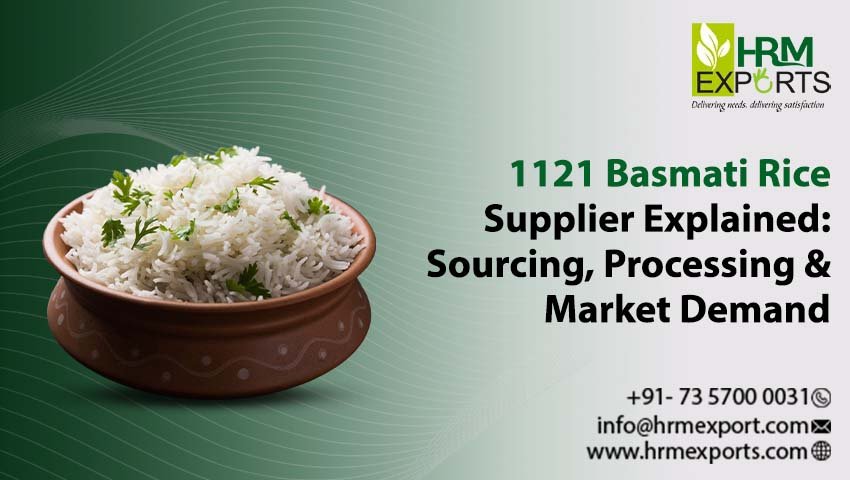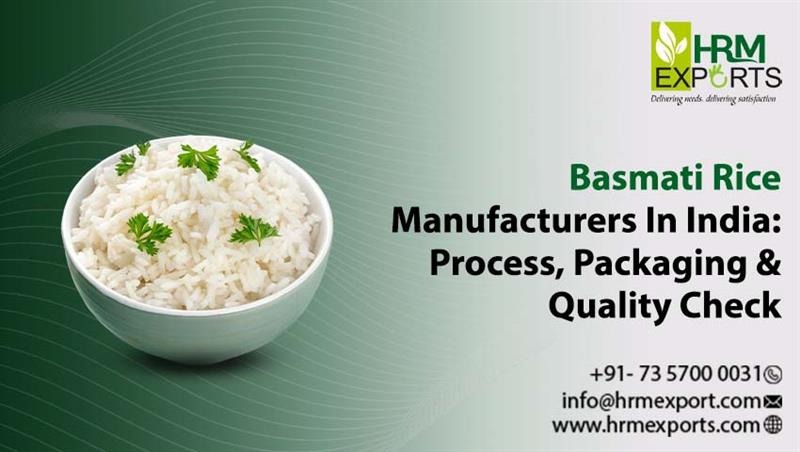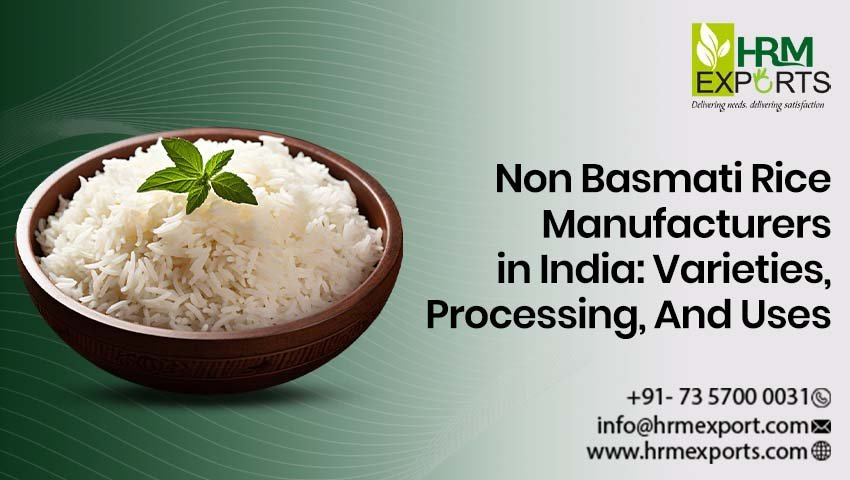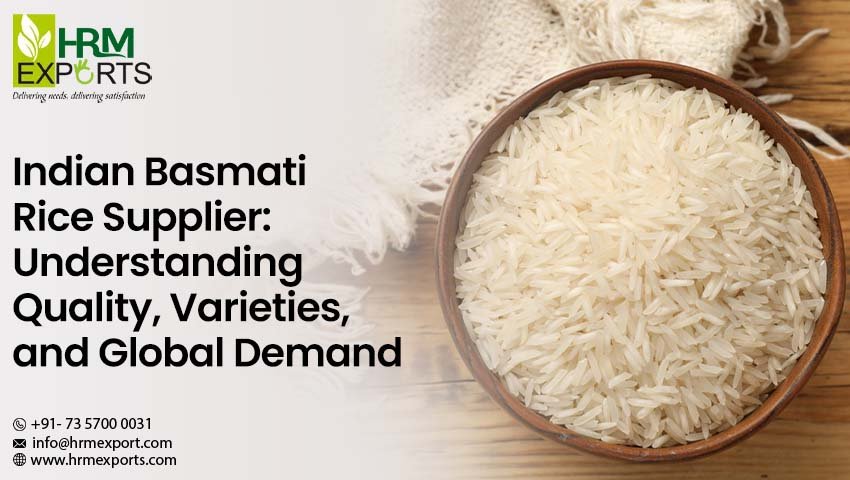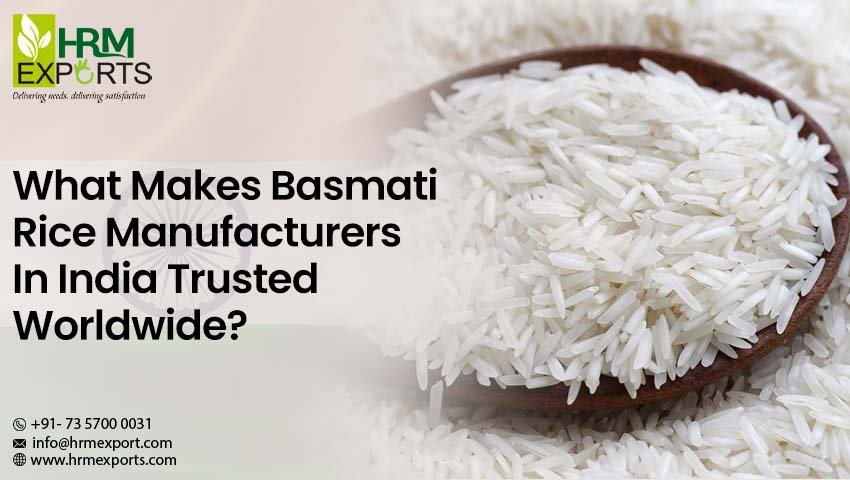Blogs

How Do Indian Basmati Rice Manufacturers Handle The Processing?
Have you ever thought that what makes Basmati rice so aromatic, long, and royal on your plate? It's not some kind of magic —it's careful processing! The making of basmati rice in actual is the journey from the lush paddy fields to your dining table is as fascinating as the aroma that fills your kitchen.
Let's have a look on how Basmati Rice Manufacturers in India take care of the whole processing to provide the best quality products to the customers.
Process of Basmati Rice Handling
1. Everything Starts in the Fields
In India, the best Basmati rice is grown in the region between Punjab and Haryana extending to Uttar Pradesh.
• Farmers cultivate a particular variety in a particular microclimate to enhance its aroma and length.
• The process includes preservation of biological varieties, natural irrigation, and dryland farming.
2. Harvesting With Proper Care
• As with any crop, timing is essential for every step, including the sale and harvest.
• Modern combine harvesters no longer damage the fragile grains during harvest.
• After harvest, the grains are processed within the ideal storage conditions.
3. The Process of Maturing Basmati Rice
“Like good wine, basmati improves with age!”
• Most manufacturers set standards for the aging process, storing the rice for 12 to 24 months to improve aroma, texture and elongation.
• They are kept in optimal places where the moisture content is balanced.
4. Cleaning and Dehusking: The First Step of Polishing
• The first layer of rice is removed by high-end equipment.
• Grains go through the cleaning stage which consists of removing dirt, stones and other things.
5. Milling and Polishing
• Milling includes the removal of bran layers from the rice and as such, needs to be done without breaking the grains.
• Careful polishing restores the natural polish without damaging nutrients.
• Premium Basmati’s polish is done ‘just right to retain’ the trademark flavour and preserve the crystalline appearance.
6. Grading
• Basmati rice is sorted geographically, by length, color and odor.
• Advanced machines and laser sorters guarantee that only the best quality grains are selected.
• Broken or discolored grains are sorted out and then repurposed for other uses.
7. Testing Quality and Packing
• All batches go through testing in the lab for checking on moisture, length, purity of the sample, and aroma.
• Use of vacuum packaging or nitrogen-flushed bags come for the preservation of rice, to keep it fresh and free from bugs.
• Beauty in packaging is not only skin deep, packaging here is based on scientific principles!
8. Global Shipping
• Ready to export rice is loaded in specially designed containers which are approved as food safe and hygienic.
• Timely checks are done for the adherence to the standards set globally for quality control.
Bonus: Did You Know?
• India accounts for over 70% of the world’s basmati rice production.
• Basmati rice is a delicacy and once cooked, can reach a length of 8.4 mm. That’s luxurious!
• The GI (geographical indication) tag certifies the varieties of basmati rice produced in India ensures its authenticity throughout the world.
Why Indian Basmati Rice Stands Out?
• Traditional farming strategies with modern-day techniques.
• Responsible sourcing and sustainable agriculture.
• Regular use of new techniques and quality checks by Basmati Rice manufacturers in India makes them the best product to sell further.
Conclusion
At the core of this remarkable journey is the unwavering commitment and considerable effort put forth by industry leaders such as HRM Exports. Renowned for its trust and premium quality, HRM Exports integrates tradition with modern technology to offer the finest basmati rice.
Most Searched Keywords
• Basmati Rice Manufacturers
• Top Basmati Rice Manufacturers
• Best Basmati Rice Manufacturers
• Basmati Rice Manufacturers in India
03 Feb, 2026
1121 Basmati Rice Supplier ...
